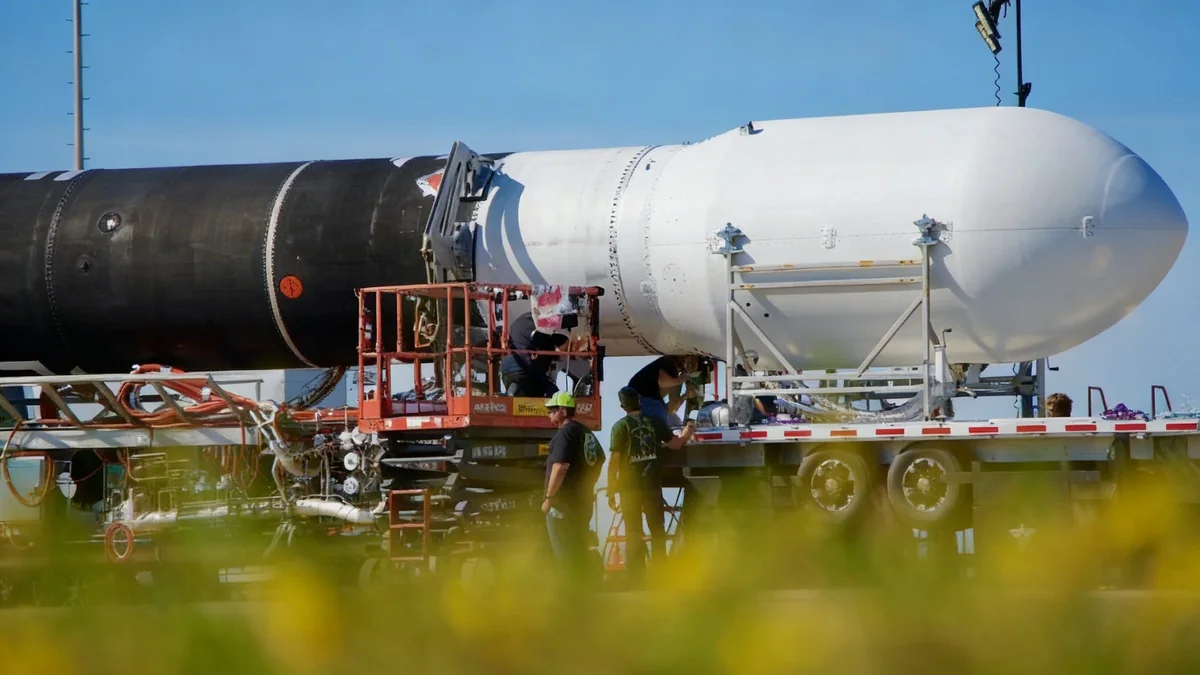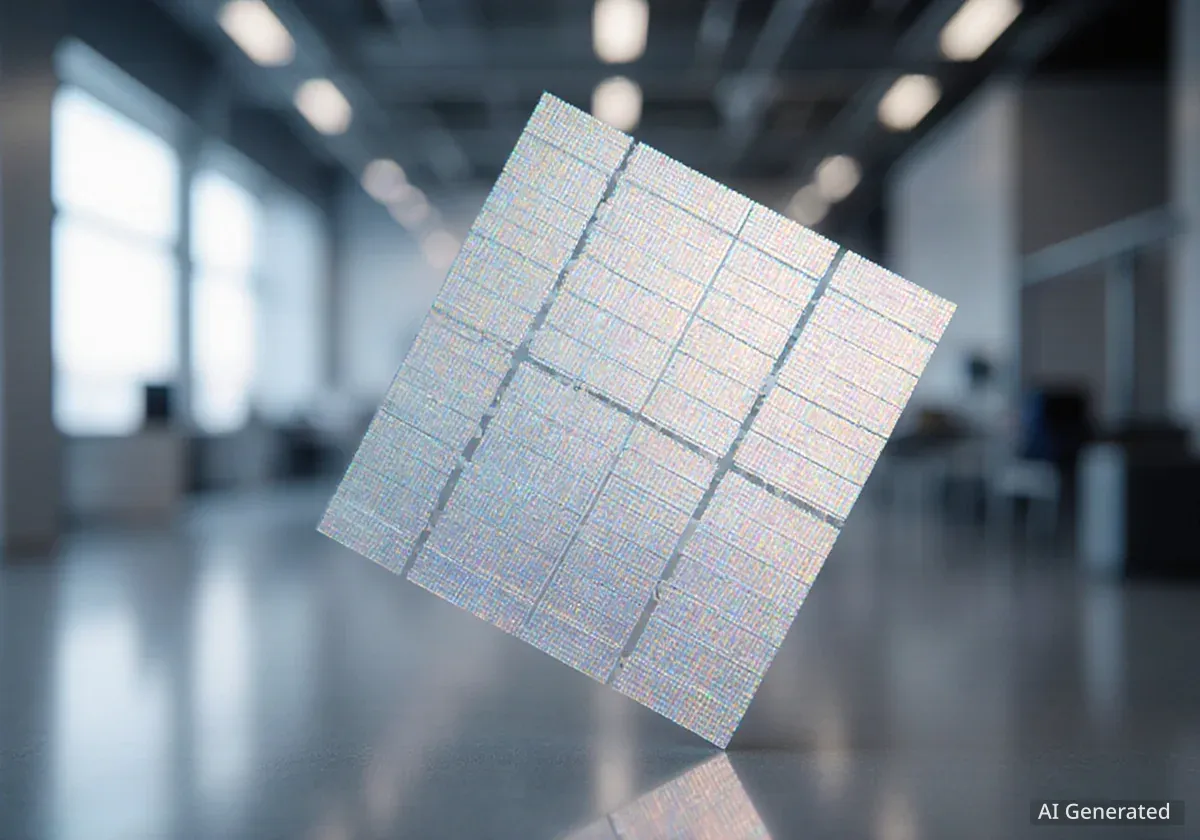A new orbital data center with over one petabyte of storage capacity is scheduled for deployment on the International Space Station (ISS) in 2027. This project, led by Axiom Space and Spacebilt Inc., will use enterprise-grade solid-state drives from Phison Electronics to significantly enhance data processing and artificial intelligence capabilities in low-Earth orbit.
The initiative, known as the Axiom Orbital Data Center Node (AxODC), aims to create a powerful computing hub in space. This will allow astronauts and researchers to conduct complex data analysis directly in orbit, reducing the need to transmit massive datasets back to Earth for processing.
Key Takeaways
- Axiom Space and its partners will launch an orbital data center to the ISS in 2027.
- The system will feature over one petabyte of storage using Phison's Pascari enterprise SSDs.
- It will enable in-space AI processing and high-performance computing, supported by Microchip processors.
- This infrastructure reduces reliance on Earth-based data processing, speeding up space research.
A New Era for Computing in Space
The development of the Axiom Orbital Data Center Node represents a significant step forward for space-based infrastructure. Historically, data collected from experiments in space had to be sent back to ground stations on Earth for analysis, a process that can be slow and limited by bandwidth.
By establishing a high-capacity data center directly on the ISS, the project will create an environment for real-time data processing. This is crucial for data-intensive fields like Earth observation, materials science, and biological research conducted in microgravity.
The project is a collaboration between several technology leaders. Axiom Space, known for its work on commercial space stations, is leading the effort with Spacebilt Inc. They have partnered with Phison Electronics for storage solutions and Microchip for processing hardware.
The Technology Behind the Orbital Data Center
At the core of the AxODC is its substantial storage capacity. Phison Electronics will supply its Pascari enterprise-grade SSDs, delivering over one petabyte of storage. A petabyte is equivalent to 1,000 terabytes, or one million gigabytes, providing ample space for large-scale scientific datasets.
These SSDs are specifically designed for enterprise environments, offering high performance and durability. According to Phison, the drives have been tested to withstand the harsh conditions of space, including radiation and extreme temperature fluctuations.
Petabyte Scale Explained
One petabyte of data is an immense amount. To put it in perspective, it is equivalent to approximately 500 billion pages of standard printed text or about 223,000 feature-length movies in 4K resolution.
For processing power, the data center will utilize PIC64-HPSC processors from Microchip. These processors are designed to handle AI acceleration and high-performance computing tasks, allowing the system to run complex algorithms and machine learning models directly in orbit.
Enabling AI and Advanced Research in Orbit
The integration of AI capabilities is a key feature of the AxODC. With powerful processors and massive storage, the data center will allow for sophisticated AI workloads to be executed in space for the first time on this scale. This opens up new possibilities for autonomous systems, predictive modeling, and intelligent data analysis without human intervention from the ground.
Astronauts and scientists will be able to store, process, and analyze data from their experiments immediately. This accelerates the pace of research and discovery, as insights can be gained much faster than before. For example, an experiment studying cellular biology in microgravity could generate terabytes of imaging data, which can be processed on the spot to adjust experiment parameters.
Why In-Space Processing Matters
The primary bottleneck for space science has long been the data downlink—the connection used to send information back to Earth. This link has limited bandwidth, creating a traffic jam for large datasets. Processing data in orbit bypasses this bottleneck, allowing for more ambitious and data-heavy experiments to be conducted.
K.S. Pua, the CEO and Founder of Phison Electronics, commented on the company's role in the project.
"We are committed to enabling storage in space as the next data frontier. To support this launch and bring unmatched, petabyte-level storage capacity in an ODC environment, Phison is providing Pascari enterprise SSDs as the foundation for the AxODC Node aboard the International Space Station."
Pua also emphasized the significance of this milestone, stating, "This milestone demonstrates how our innovations in high-performance storage are extending beyond data centers on Earth to enable the next era of space-based computing and AI."
Connectivity and Future Implications
Beyond its onboard processing capabilities, the AxODC is designed to be a networked hub. The infrastructure will include high-speed optical interconnects, allowing it to communicate with other assets in orbit. This network will connect the ISS-based node to low-Earth orbit (LEO) satellites and other spacecraft.
This creates the foundation for a true in-space network, where data can be shared and processed between different orbital platforms. Such a network could support a wide range of future activities, including:
- Earth Observation: Satellites capturing high-resolution imagery could offload data to the AxODC for immediate processing and analysis.
- Space Debris Tracking: A network of sensors could feed data into the hub to track orbital debris in real time.
- Deep Space Missions: Future missions to the Moon or Mars could use orbital data centers as relay points for communication and data processing.
Building the Future of Space Infrastructure
The AxODC project is part of a broader trend of commercializing and expanding infrastructure in low-Earth orbit. As more private companies and national agencies plan for a sustained human presence in space, robust computing and data management systems become essential.
The deployment in 2027 will serve as a critical testbed for technologies that could be used on future commercial space stations, lunar bases, and long-duration missions into deep space. By proving that petabyte-scale data centers can operate reliably in space, Axiom Space and its partners are paving the way for a more connected and data-driven future beyond Earth.





